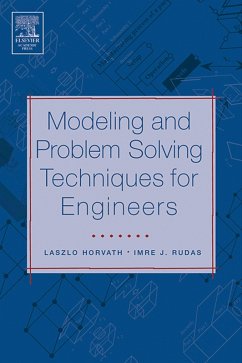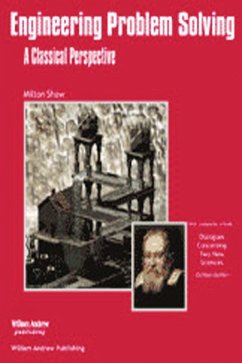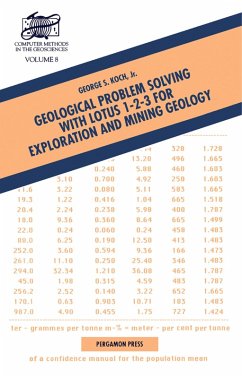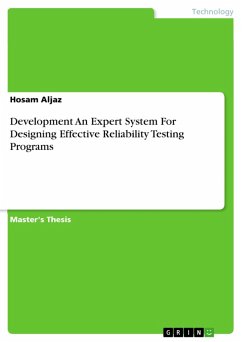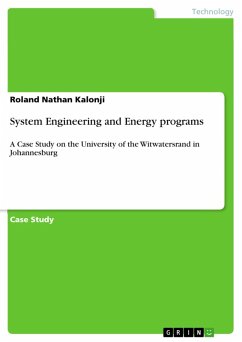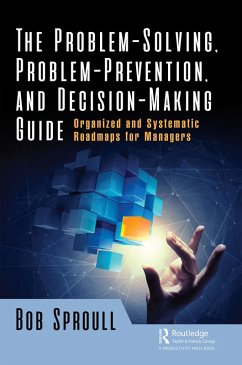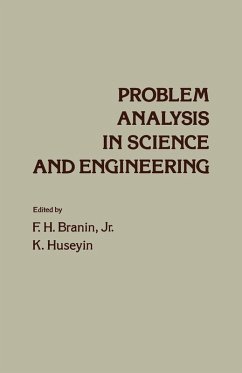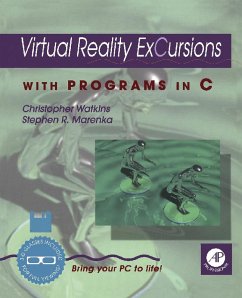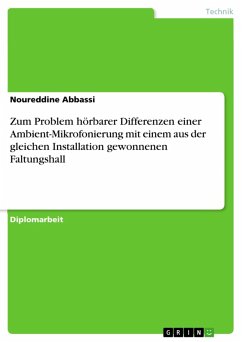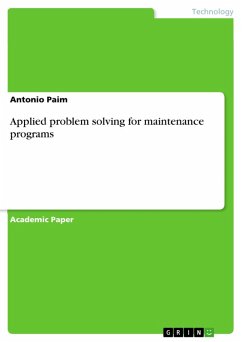
Applied problem solving for maintenance programs (eBook, PDF)
Sofort per Download lieferbar
15,99 €
inkl. MwSt.

PAYBACK Punkte
0 °P sammeln!
Academic Paper from the year 2018 in the subject Engineering - General, grade: 62/100, University of Lincoln, course: Engineering Management, language: English, abstract: The objective of this report is to present the issues related to successive equipment/machine failure within a Biorefinery industry in Angola. This work presents several complex problem-solving techniques that could be fully applied to the situation that enable the Planning and Control Maintenance (PC&M) department to interpret the information from large datasets from the machineries. The combination of models and techniques ...
Academic Paper from the year 2018 in the subject Engineering - General, grade: 62/100, University of Lincoln, course: Engineering Management, language: English, abstract: The objective of this report is to present the issues related to successive equipment/machine failure within a Biorefinery industry in Angola. This work presents several complex problem-solving techniques that could be fully applied to the situation that enable the Planning and Control Maintenance (PC&M) department to interpret the information from large datasets from the machineries. The combination of models and techniques allowed the team involved in the problem solving process to identify three preferred potential solutions related to equipment/machine failure. Through further analysis using the Plus/Minus/Interesting and Force Field Analysis it was possible to narrow these down to a single solution. The preferred solution was chosen by carrying out a comparative analysis and the weighted score indicated the suitability of the solution for the given scenario of the complex problem. Knowing that solution implementation is not readily accepted automatically, a PPA (Potential Problem Analysis) was presented in order to alleviate the risk of new problems occurring during the implementation of the chosen solution process. The implementation plan took into consideration the budget, the time and possible project cost escalation. The recommendations that will be presented include stringent requirements for getting budget approval in order to expedite contractual agreements IoT (Internet of Things) providers, AI (Artificial Intelligence) companies and Outsource Expertise. It is suggested that if all of the requirements are met then the successive machine breakdown rate would achieve considerably low rates.
Dieser Download kann aus rechtlichen Gründen nur mit Rechnungsadresse in A, B, BG, CY, CZ, D, DK, EW, E, FIN, F, GR, HR, H, IRL, I, LT, L, LR, M, NL, PL, P, R, S, SLO, SK ausgeliefert werden.




